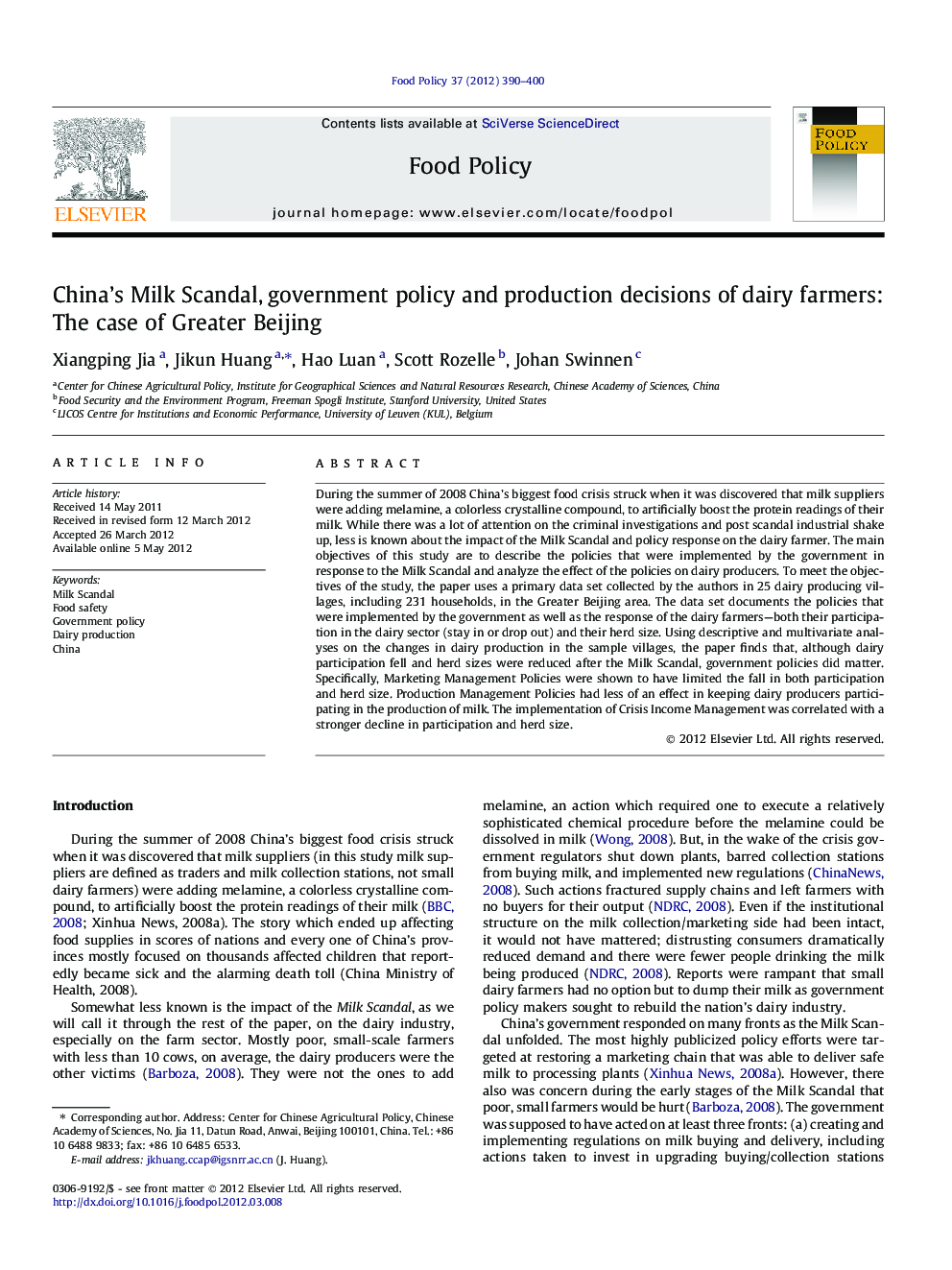| کد مقاله | کد نشریه | سال انتشار | مقاله انگلیسی | نسخه تمام متن |
|---|---|---|---|---|
| 5070938 | 1373285 | 2012 | 11 صفحه PDF | دانلود رایگان |

During the summer of 2008 China's biggest food crisis struck when it was discovered that milk suppliers were adding melamine, a colorless crystalline compound, to artificially boost the protein readings of their milk. While there was a lot of attention on the criminal investigations and post scandal industrial shake up, less is known about the impact of the Milk Scandal and policy response on the dairy farmer. The main objectives of this study are to describe the policies that were implemented by the government in response to the Milk Scandal and analyze the effect of the policies on dairy producers. To meet the objectives of the study, the paper uses a primary data set collected by the authors in 25 dairy producing villages, including 231 households, in the Greater Beijing area. The data set documents the policies that were implemented by the government as well as the response of the dairy farmers-both their participation in the dairy sector (stay in or drop out) and their herd size. Using descriptive and multivariate analyses on the changes in dairy production in the sample villages, the paper finds that, although dairy participation fell and herd sizes were reduced after the Milk Scandal, government policies did matter. Specifically, Marketing Management Policies were shown to have limited the fall in both participation and herd size. Production Management Policies had less of an effect in keeping dairy producers participating in the production of milk. The implementation of Crisis Income Management was correlated with a stronger decline in participation and herd size.
⺠Milk Scandal in China. ⺠Household longitudinal data. ⺠Dairy participation fell. ⺠Herd sizes were reduced. ⺠Government intervention did matter.
Journal: Food Policy - Volume 37, Issue 4, August 2012, Pages 390-400